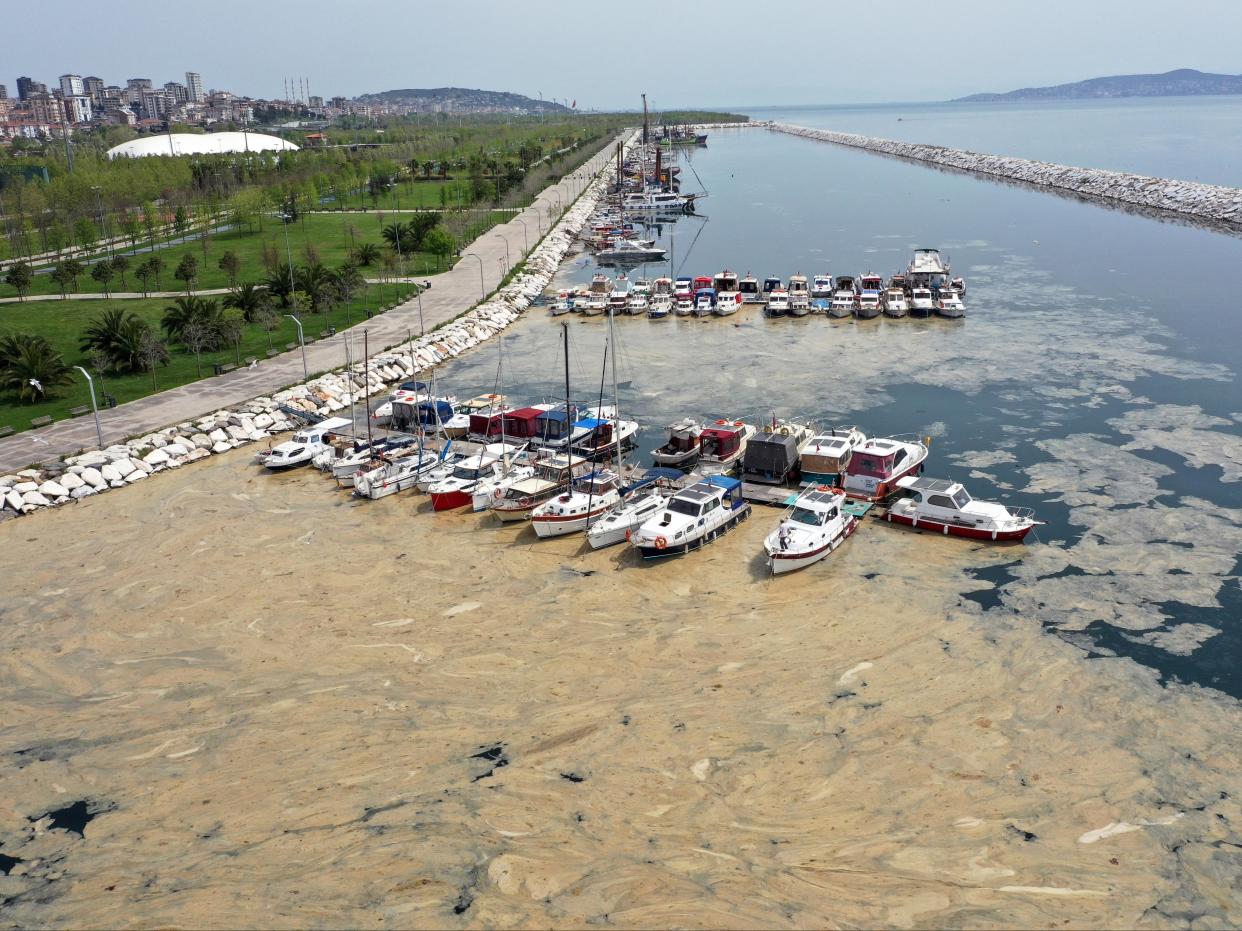‘Sea snot’ covering Turkish shoreline blamed on global warming and sewage

A thick, sticky, mucus-like substance known as “sea snot” has spread across the waters of the Sea of Marmara in Turkey.
Scientists have warned that the substance is increasing due to climate change.
The sea snot, which had not been seen in the Sea of Marmara before 2007 and has been proliferating over the last six months, could pose a problem to fish and eventually humans.
The issue is caused by phytoplankton that can grow out of control when nutrients such as nitrogen and phosphorus become widely available in seawater, such as when nutrient-rich untreated sewage flows into it.
“The increase in the number of elements such as nitrogen and phosphorus in the sea is largely related to domestic waste such as sewage,” Mustafa Sarı, maritime faculty dean of Bandırma Onyedi Eylül University, told the Daily Sabah.
“Domestic waste released into the sea without treatment increases the nitrogen and phosphorus load of the seawater.
“The sea snot resulting from this excessive proliferation is generally seen from 16ft to a depth of 98ft.”
The sea snot from the phytoplankton could cause issues for humans because it makes it impossible for people to fish or swim in the waters.
“I have been traveling here for 15 years and there used to be [snot] at some times,” Burak Yenilmez, who works on a ship, told the paper. “But it is worse this year. It is such a dirty sight, and it stinks.”
Hakan Kara, a diver, told the paper: “Our work reduced up to 70 per cent.” He said the snot, which is visible at ports and on the surface, was actually “10-15 times higher under the water.”
He added: “It is in pieces but everywhere. The bottom of the sea is completely covered with snot. Sea horses, crabs, small fish and any marine creatures living there die because it clogs their gills. We need an urgent solution to this situation.”
Experts have warned that climate change has exacerbated the problem.
Dr Neslihan Özdelice, a marine biologist at Istanbul University, told The Guardian: “The main trigger is warming related to climate change, as phytoplankton grow during higher temperatures.”
She said seawater had warmed by 2-3C since preindustrial times, but conceded that countering climate change would require a global and concerted effort and urged Turkey to focus on issues such as overfishing and waste water discharges.
She added: “We are experiencing the visible effects of climate change, and adaptation requires an overhaul of our habitual practices. We must initiate a full-scale effort to adapt.”
Read More
What is the climate crisis, why is it happening and what are the impacts?
Is Jeff Bezos serious about fighting the climate crisis and how will his $10bn Earth Fund be spent?
Shell faces court ruling on greenhouse gas emission reduction targets

